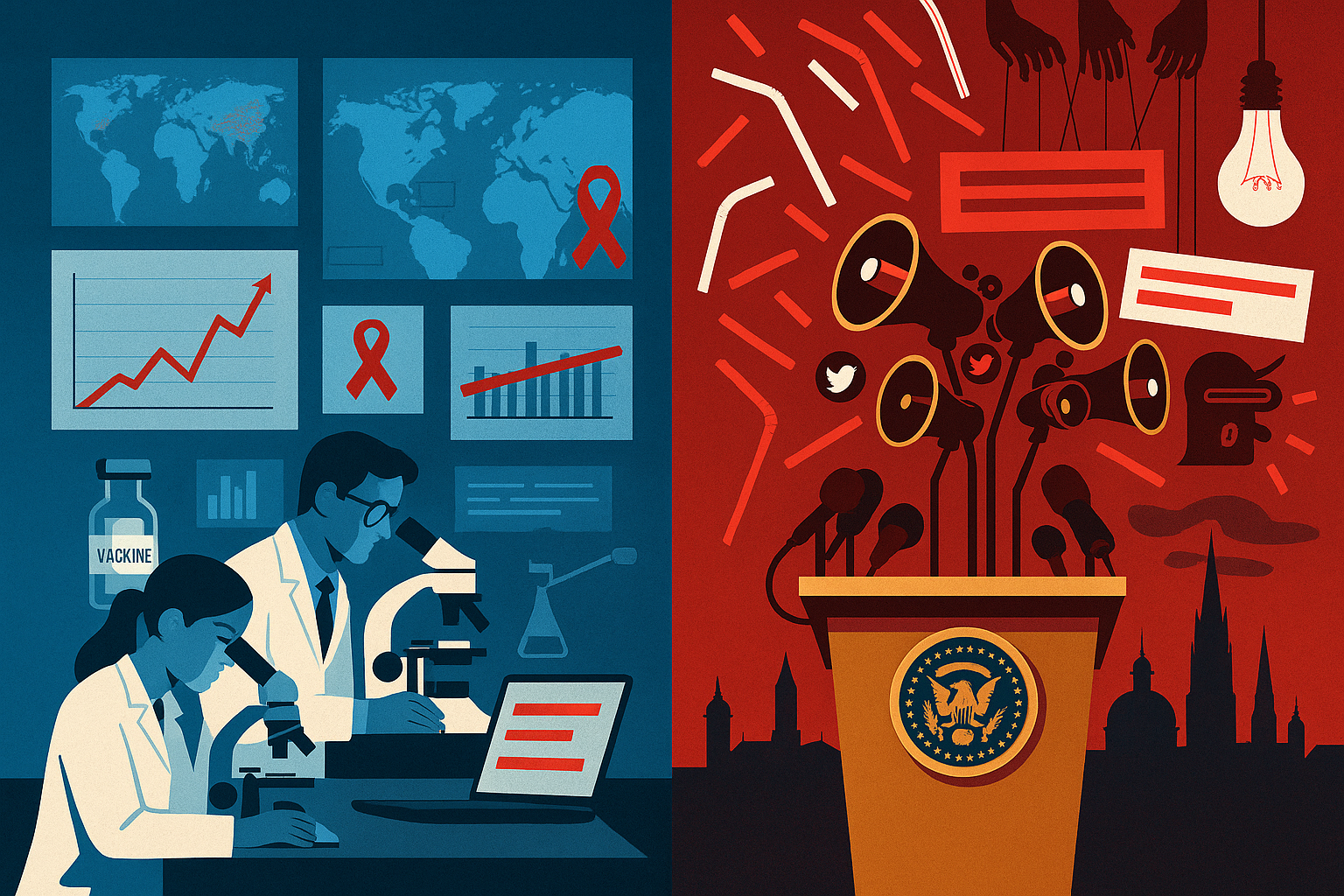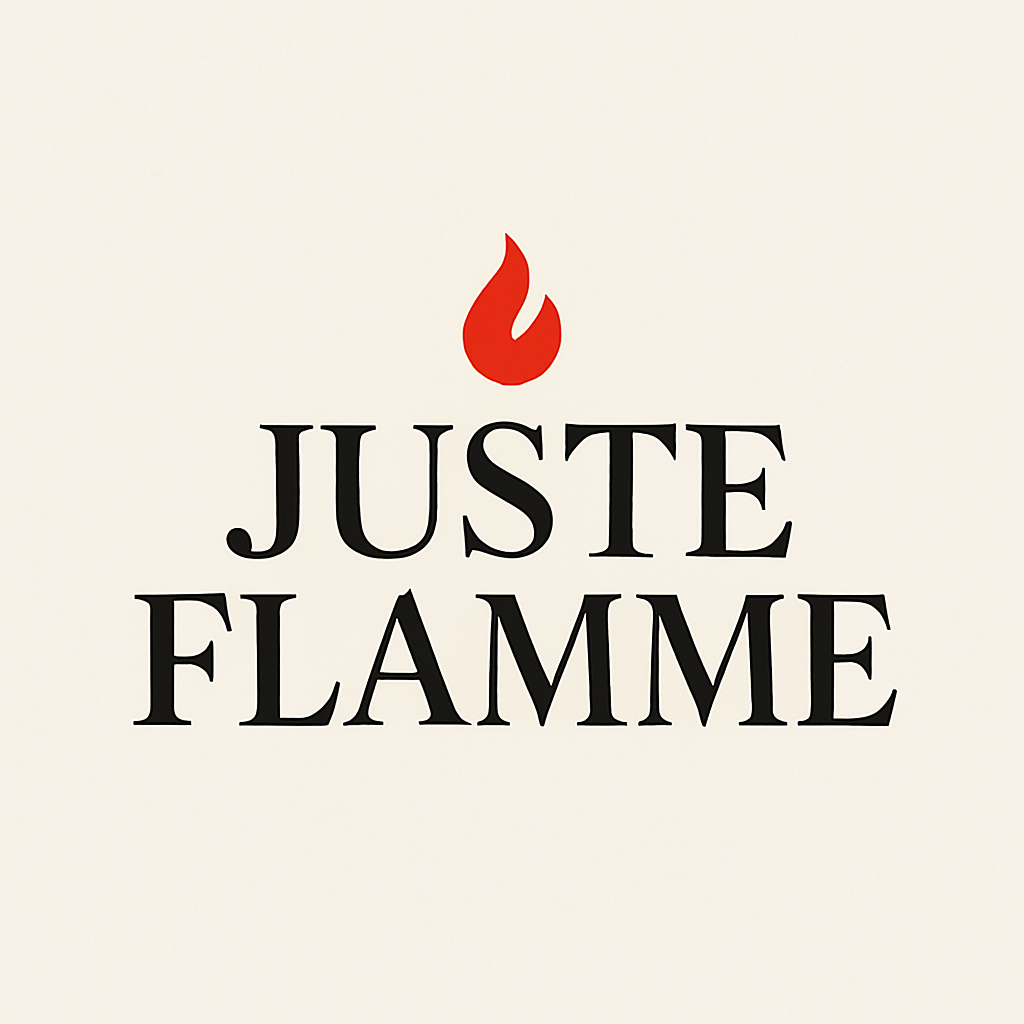Governing Against Evidence: Inside the Second-Term Assault on Science
How Trump's second term turns public health into propaganda and science into a target

Science only protects people when evidence is allowed to lead. Since January 2025, Washington has done the opposite. Expertise is treated as an obstacle to be removed or repurposed. Independent voices are pushed offstage, loyalists are handed the microphone, and complex systems are reduced to content for the next outrage cycle. The fallout is not theoretical. It touches the advice given to pregnant women, the trust that keeps vaccines working, the funding that keeps cancer trials alive, the climate data cities rely on, and the basic conditions for free inquiry in universities.
This is not a run of clumsy mistakes. It is a governing style. Elevate a fringe claim until it sounds like common sense. Pressure agencies to perform a review. Starve or redirect the budgets that produce inconvenient facts. Let friendly influencers turn policy into theater. Repeat until the public is too exhausted to tell the difference between proof and performance.
Health guidance turned into a stage show
The clearest tell is how the administration handles medical advice. A speculative link between acetaminophen use in pregnancy and autism was hauled from the margins into the White House briefing room. The spectacle mattered more than the science. Doctors and professional bodies spent days reminding the public that treating fever in pregnancy is necessary and that correlation is not causation. Nothing in the evidence base changed. Only the politics did.
The vaccine front follows the same script. When officials celebrate the pullback of mRNA development or slow walk immunization programs, the public hears a simple headline. If the government is hesitant, maybe I should be too. Measles does not wait for clarification. It finds the gaps created by doubt. Outbreaks rise where confidence falls, and suddenly local clinics are firefighting a disease that should be a memory.
Theatrical medicine also rebrands niche findings as universal breakthroughs. A therapy that may help a very specific subgroup is presented alongside sweeping warnings about everyday drugs. The point is not to inform. It is to blur the line between hypothesis and proof until the audience cannot tell which is which. Real science moves carefully. Theater rewards the most clickable story.
Making universities kneel by tightening the purse strings
Authoritarian politics rarely needs book bans if it can control the budget. Choose a prestigious campus, accuse it of moral or cultural sin, then threaten research grants, contracts, and tax treatment. The case does not need to hold up in court to do damage. University leaders read the political weather and start self censoring to protect payrolls and students. Faculty learn which topics attract subpoenas and which ones glide through committee. The chill spreads without a single statute.
Audits serve as a second lever. Broad compliance sweeps create a blizzard of document requests. Legal departments urge caution. Grant writers polish titles so they look less controversial. Peer review still exists, but the political filter arrives before proposals leave the lab.
Private donors can be turned into enforcers, another hallmark of the current climate. Threaten to pull gifts unless a center closes, a speaker is disinvited, or a course is rewritten. When public funds wobble, philanthropy fills the gap, and the loudest donors pick the tune. The losers are first generation students who depend on stable support, and the public that needs open, fearless research.
The migration pinch is quieter but just as corrosive. Delays and denials for student and researcher visas scare off bright people who would have built careers in American labs. They choose Canada, Europe, or the private sector instead. Scientific fields take years to grow and can be set back in a single admissions cycle.
Claiming a cure while pulling the plug on cancer progress
There is no need to abolish the National Cancer Institute to stall progress. Uncertainty is enough. A cut here, a freeze there, a leadership vacuum that drifts for months, and the momentum drains away. Postdocs do not get renewed. Trial coordinators change jobs. Enrollments slip, especially for pediatric and rare diseases where numbers are already thin.
The infrastructure that makes oncology work is largely invisible to the public. Registries, biobanks, reference labs, and data platforms tie centers together and allow researchers to compare outcomes. When renewals stall or access is quietly narrowed, collaboration shrinks. The work becomes slower and more expensive, which then becomes the excuse for further cuts.
Prevention takes a beating too. Tobacco control, HPV vaccination, environmental monitoring, screening programs, and the patient navigation roles that help families move through the system are easy political targets. Cut any one of them and late stage diagnoses rise. That is not an opinion. It is what the numbers show every time prevention is neglected.
A fragile regulator makes matters worse. Oncology needs an agency that is both fast and rigorous. If advisory committees are packed for show or approvals swing with the news cycle, industry takes its bets elsewhere. Small biotechs, the source of many breakthroughs, are the first to leave.
Climate policy reduced to props and punchlines
Climate action has been reframed as a series of petty grievances. Plastic straws, shower heads, gas stoves, light bulbs, each turned into a badge of rebellion. While people argue about kitchen gear, real standards are softened or delayed and public datasets go dim. That is not a legitimate policy debate. It is vandalism against the tools planners and emergency managers use to protect lives and property.
Regulatory whiplash finishes the job. Announce a rollback. Promise a rewrite. Change the timeline again. Investors wait. Projects stall. Factories are built where rules are predictable. Innovation hates chaos and chaos is the point. The end result is dirtier air, higher bills for households, and a lost decade on resilience.
None of this stops at the water's edge. European cities plan floods, heat, transport and food supply with models and baselines that assume the United States is a serious partner. If Washington chooses pageantry over policy, European costs rise and timelines slip. The moral is simple. Memes do not lower temperatures. Institutions do.
The method behind the noise
The day to day shock is a distraction. The pattern does not change. First, turn a fringe idea into a national talking point. Second, replace independent referees with voices that flatter the leader. Third, punish holdouts with budget threats, audits, and donor pressure. Fourth, make inconvenient numbers harder to access. Fifth, reframe basic standards as elite coercion. Last, demand applause for the damage and blame everyone else for the consequences.
This works because responsible institutions are slower and more transparent than propaganda machines. By the time experts have corrected the record, the next performance has already started. The target is not a majority. It is exhaustion. If enough people give up on the idea that facts can be shared, the field is clear for rule by narrative.
Why the fallout crosses borders
Outbreaks travel along flight paths. Doubt about vaccines in the United States reduces coverage and seeds cases that land in European airports. Local clinics pay the bill. Research is transatlantic. Labs, biobanks, and trials stretch from Boston to Barcelona. When funding stumbles in Washington, a protocol slips in Porto or Kraków. Regulators are reference points. If one major authority looks politicized, others must redo the work, which raises costs and leaves smaller markets behind.
Public health surveillance depends on shared feeds. Climate portals, pathogen sequencing, drug shortage trackers, overdose dashboards, all stitched together across countries. If American inputs slow or go dark, situational awareness collapses elsewhere. Supply chains feel the shock next. The United States sets prices and pace for many generics and sterile injectables. Policy chaos leads to shortages that hit European oncology wards and intensive care units without warning.
The workforce is global. Visa pressure and campus coercion drive away the researchers who make systems run. That capacity cannot be replaced quickly. And trade turns deregulation into exposure. If high carbon goods gain an edge because rules are gutted, Europe either defends its standards at the border or pays later in health and climate damage. There is no neutral choice.
Why strongmen always target science
Science distributes power. It obliges leaders to accept limits and to show their work. It creates records that do not bend to the day's narrative. It also builds solidarity, because vaccination, clean air, and flood protection require trust among strangers. None of this sits well with politics that depends on suspicion and obedience. If your project is loyalty first and truth later, you must keep the referees weak and the data pliable. You do not have to ban the truth. You only need to drown it in noise and make the honest brokers tired.
Europe's responsibility and the practical fixes
Europe cannot simply watch. Our hospitals, universities, and regulators rely on the same backbone of evidence. We should mirror critical climate and health datasets inside the Union with legal guarantees for open access. We should keep trials alive with automatic bridge funding when cross border projects are disrupted. We should protect campuses with academic freedom clauses and fast lanes for threatened scholars. We should secure essential medicines through joint procurement, diversified manufacturing, and transparent stockpiles that rotate before expiry.
Regulators need to act in concert and speak plainly. Publish deliberations in full. Maintain independence in appointments and advisory groups. Predictability attracts investment and keeps innovators here. Communication must match the platforms people actually use. Short, multilingual explainers for WhatsApp, Instagram, and community radio, backed by detailed notes for professionals. A nurse in Faro or Ghent should have a clear script when the latest scare hits the waiting room.
Trade policy and foreign policy should reinforce these choices. Enforce the carbon border adjustment with seriousness. Tie research partnerships and data sharing to minimum standards of openness and integrity. There is a difference between honest disagreement in democracies and deliberate sabotage of evidence. Treat the second as a security problem.
Choose the map, not the mirage
This struggle is not about left versus right. It is about whether facts still have standing in public life. The current project in Washington turns expertise into a costume, data into a prop, and health into entertainment. Measles does not care. Tumors do not care. Floods do not care. Democracies either defend the institutions that produce reliable knowledge, or they end up governed by vibes and spectacle.
Europe has a direct stake. Our trials, registries, supply chains, and city plans are tied to the same systems that are being hollowed out. The answer is competence with spine. Mirror the data. Bridge the money. Guard the standards. Protect the campuses. Speak clearly and early. Invite oversight and show the work. Confidence grows when citizens can see how decisions are made and where the numbers come from.
Authoritarians attack science because it teaches people to say, show me. Keep that habit alive. Fund the boring infrastructure of knowledge. Back the people who maintain it. Build redundancy across borders so that no single government can pull the plug on shared reality. Choose the map, and keep choosing it, especially when the spectacle insists you look away.
📨 Stay Informed. Stand Up.
All our work is published freely on Juste Flamme's Substack, because the defense of democracy should never be paywalled.
But if you believe in what we do, confronting authoritarianism, exposing disinformation, and standing up for a free, inclusive society, consider becoming a paid subscriber.
Your support helps us go further, dig deeper, and reach more people in the fight for truth and liberty.
